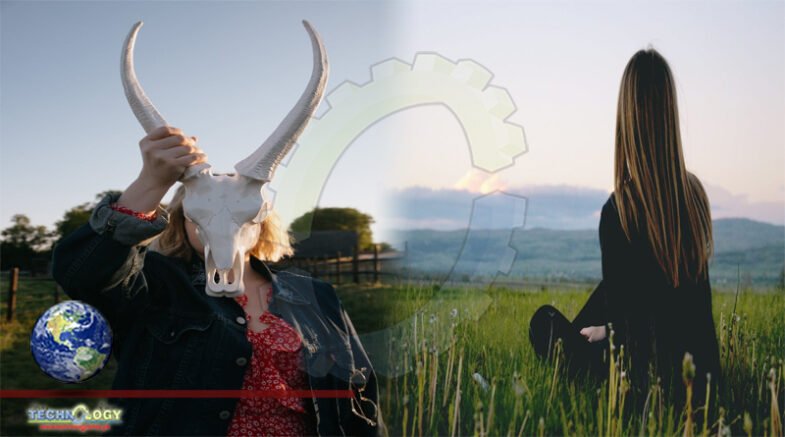Amy Walker shares her story about how technology is helping rural women working in agriculture reach their career goals.

By Robyn Foyster
To mark this National Agriculture Day (Friday, 20 November), Amy Walker, assistant farm manager at Breakfast Creek, a 3300-hectare property south of Boorowa, New South Wales, shares her story about how technology is helping rural women working in agriculture reach their career goals.
Until 1994, Australian women could not legally claim to be ‘farmers’, with the law defining them as domestics, helpmates and farmers’ wives. We’ve come some way since then — now, half of all we eat, the rural workforce and all farm income is produced by women. Yet, just 18% of management roles and 2.3% of CEO positions are held by women in the industry.
Amy grew up having the run of her Hovells Creek home, constructing forts, building campfires and learning to cook in the coals at a young age. Since then, despite the challenges she’d faced being a woman in the industry, she hasn’t looked back. From being bullied at school for her love of agriculture, her nickname being “Aggie Amy”, because she found it more interesting out drenching sheep than getting drunk, through to landing her first job at Breakfast Creek, the road hasn’t been easy.
Now, climbing up the ranks, Amy wants to encourage other women to consider a career in agriculture. She believes that although women at times need to put an extra step in, the satisfaction is far greater. She also believes that women are far better at adopting technologies, like AgriWebb, down to the simple fact that women are consistently trying to find simpler, easier ways to do things. Here’s her story.
I’ve always felt invigorated by the land, agriculture and farming. From loading livestock to spraying paddocks, it’s a great feeling to be connected to nature in that way.
I grew up on a Merino farm in regional New South Wales which I consider an early apprenticeship in many ways. I had the run of our home, constructing forts, building campfires and learning to cook in the coals with my two brothers at a young age. I remember eagerly tagging alongside my father whenever he ventured into the paddock chasing sheep and putting up fences — that’s where I learned the basic skills for a career in farming, and where my passion stems from.
It hasn’t always been easy
As a woman in agriculture, the path hasn’t always been easy. Until 1994, Australian women could not legally claim to be ‘farmers’, with the law defining them as domestics, helpmates and farmers’ wives. And while we’ve come some way since then, there is still much prejudice in the industry, with women having to put an extra step in to break through and land management roles.
As an example, at school, my love of agriculture earned me the nickname “Aggie Amy” and students used to taunt me with this because they couldn’t understand why I’d rather be outside drenching sheep than partying every weekend.
Despite the challenges, I landed my first role as a Station Hand at Breakfast Creek and once I was in the industry, I noticed everyone lived and breathed agriculture. It was a much more supportive environment and as long as you’re willing to learn, someone will support you.
While being a minority in the industry can have its difficulties, women representation is on the rise, with women now representing 32 per cent of the agricultural workforce and industry-led mentoring and leadership programs also increasing to encourage women to give the industry a go.
Working smarter, not harder
As the sector continues to evolve, technology is beginning to play a leading role in its growth, from labor-saving machinery to cloud-based farm management software, like AgriWebb. Technology is helping farmers operate more efficiently, as well as more profitably.
From my experience, technology is making it easier for women to get into the industry. I’ve found that women are generally better technology adopters than men because we’re consistently finding a simpler, easier way to do things: we’re always finding ways to work smarter, not harder.
For women considering a career in technology, agriculture is increasingly demanding such skills, from artificial intelligence and machine learning through to big data and blockchain. Combining analytical skills with an aptitude for agricultural science and the ability to turn huge datasets into insight for farmers is incredibly valuable today in the industry.
Agriculture is an incredibly worthwhile career and I’d encourage all women to consider the sector – ultimately, Australia’s future depends on it.
Originally published at womenlovetech
